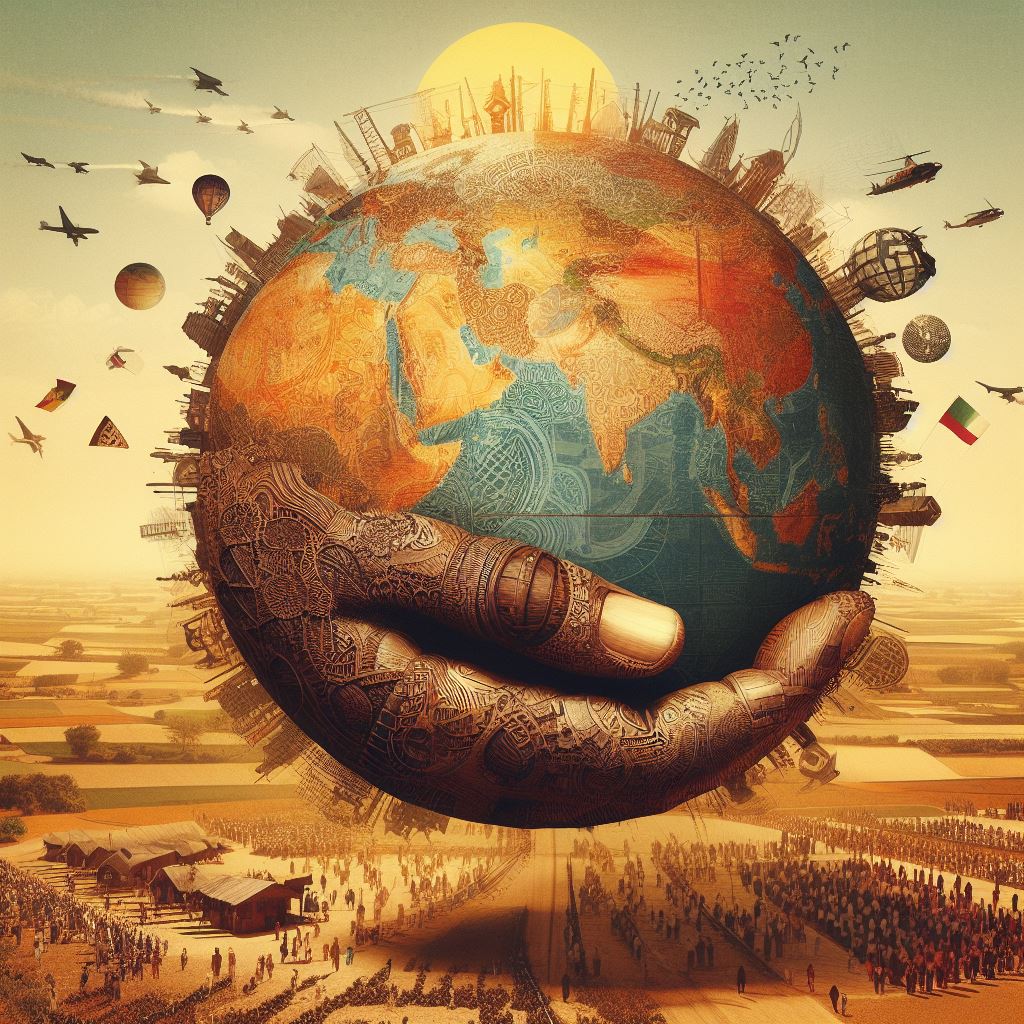A time of global transition: international concertation exercises during 2023

Translation by Amb. Oscar de los Reyes
During the present year 2023, a series of events have taken place in the multilateral sphere that reflect, on the one hand, the changes occurring in the world on that scale and, on the other hand, the proposals presented by regional groups or global articulation groups to face new and old challenges.
The backdrop has been the growing loss of U.S. hegemony in the main political and economic events on a planetary scale, plus Washington’s declaration of the end of neo-liberal globalization, as well as the attempts in the commercial sphere to disengage from important markets, particularly China.
The People’s Republic of China, for its part, celebrated the tenth anniversary of the Belt and Road Initiative, one of the main alternatives for relations with the Global South, based on the principles of equality and cooperation. The initiative expands continually in the face of the inability of the United States and Europe to articulate programs that represent a practice other than the constant plundering of the resources of Africa, Latin America-Caribbean and several Asian countries.
The continuous breaches of agreements to prevent NATO’s eastward expansion created the conditions in 2022 for Russia to launch a military operation on Ukrainian territory, which continues until 2023. Washington and other European capitals tried to use this conflict as a turning point to create international alliances, attempting to isolate Moscow and foster all out “Russophobia”. However, most of the international community did not respond to such a call.
The ethnic cleansing carried out by Israel since the beginning of October against Palestine, as a culmination also of the disrespect for several multilateral instruments that have repeatedly called for the creation of two states living side by side in peace, has generated new alliances both at the international level and within each of the societies of the main parties involved. The unrestricted support of the United States for this barbarism has further limited its ability to act as a leader, not only of a group of nations that maintain docile foreign policies contrary to their national interests, but of ruling classes that have viewed with fear the social mobilization that has taken place in their respective territories in solidarity with the Palestinian people.
In the midst of these changes and upheavals, the Republic of Cuba has held the presidency of the Group of 77 and China, the largest mechanism for political coordination among the countries that are part of the United Nations system. One of the most important results of the summit held in Havana in September was the approval of a political resolution summarizing the main concerns of the group and a set of proposals for the future.
From the Center for International Policy Research and other institutions we have taken a quick look at some of the main group meetings that took place during the year. Some of them show the inability of the mechanisms of the unipolar world to deal with the old problems of Humanity, while others reveal the attempts to move towards a multilateral world, rather than a multipolar one, in which all nations interrelate as equals and dependencies and subjugation disappear. Thus, we can consult the following opinions on the G7 Summit (May), the CELAC-EU Summit (July), the Russia-Africa Summit (July), the BRICS Summit (August) and the G20 Summit just before the Havana meeting. Finally, we will talk about the challenges of a New International Information Order, since this is an issue that directly affects the domestic and foreign policy cycles of each country, as well as the weight that information management will have in the international alliances that will be forged in the future.
Contents
- A time of global transition: international concertation exercises during 2023. PhD. José Ramón Cabañas Rodríguez
- Results of the G7 Summit. PhD. Raynier Pellón Azopardo (Coordinator), PhD. Maira Esperanza Relova, Lic. Julio Sotés, MSc. Claudia Sánchez Savín
- CELAC-EU Summit: reasons for meeting again. Lic. Lourdes M. Regueiro Bello and MSc. Claudia Marín Suárez
- The Second Russia – Africa Summit; a mutually beneficial relationship between Moscow and the Global South. Lic. Lucas D. Hernández Polledo and Lic. Rodobaldo Isasi Hernández Herrera
- Significance of the 15th BRICS Summit in the current international scenario. MSc. Claudia Marín Suárez, MSc. Eduardo Regalado Florido, PhD. Jesús Aise Sotolongo, MSc. Juan Ángel Cordero Martínez, Lic. José Luis Robaina García, Lic. Julio Sotés Morales, Lic. Lourdes Regueiro Bello, Lic. Pável Alemán Benítez, MSc. Santiago Espinosa Bejerano, Lic. Rachel Arencibia Casanova, PhD. Ruvislei González Sáez.
- The «G20 Summit» (2023) and the «Delivery of the Mountains». PhD. Jorge Casals Llano
- The Summit of the Group of 77 and China. MSc. Claudia Marín Suárez, Lic. Lourdes María Regueiro Bello; Lic. Rodobaldo Isasi; PhD. Jesús Aise Sotolongo, PhD. Ruvislei González Sáez; Lic. José Luis Robaina García; MSc. Eduardo Regalado Florido
- The challenges towards a new world information order. PhD. Sunamis Fabelo, Lic. Mayra Bárzaga, PhD. Olga Rosa González (CEHSEU), MSc. Claudia Sánchez, PhD. Mario A. Padilla Torres, MSc. Elio Perera Pena, MSc. Ángel Rodríguez Soler

Déjanos tu comentario